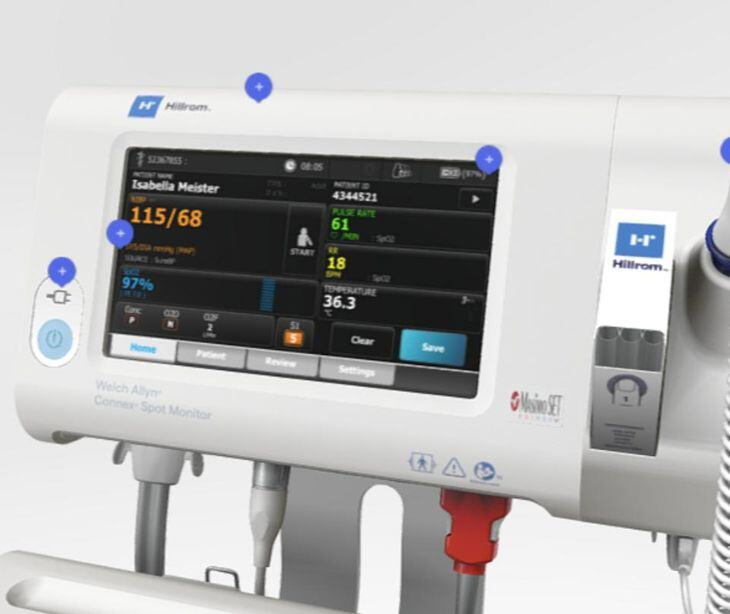1 min read
Critical security flaws found in Baxter Welch Allyn medical devices
Kirsten Peremore
June 07, 2024

On May 30, 2024, CISA identified remote exploitable vulnerabilities in Baxter Welch Allyn medical devices, risking unauthorized access and compromising patient care, with patches and updates pending.
What happened
On May 30, 2024, CISA published two ICS Medical Advisories addressing vulnerabilities in Baxter products: the Welch Allyn Configuration Tool and the Welch Allyn Connex Spot Monitor (CSM). These vulnerabilities, which received a CVSS v4 score of 9 or higher, are exploitable remotely. Exploiting these flaws could lead to unauthorized access to credentials and modification of device configurations and firmware data, potentially delaying or impacting patient care.
While Baxter has not found evidence of these vulnerabilities being exploited, they are taking action. A software update for the Welch Allyn Configuration Tool will be available in Q3 2024, while the Connex Spot Monitor received its update on October 16, 2023. Baxter and CISA have provided recommendations and workarounds to mitigate the risks associated with these vulnerabilities.
See also: Software updates to prevent cyberattacks
What was said
According to the H3 Sector alert on the vulnerabilities Baxter commented the following on the vulnerabilities, “Any credentials that were used for authentication or input while using the Welch Allyn Configuration Tool have the potential to be compromised and should be changed immediately.”
Why it matters
The increase in vulnerabilities, such as the flaws in Baxter Welch Allyn products and the discovery of over 90 Android apps with malware like the Anatsa trojan, reveal weaknesses in medical device security and app marketplace protections. These vulnerabilities matter because they expose sensitive information, including medical data and banking details, to unauthorized access.
This can lead to serious consequences, such as delays in patient care due to compromised medical devices or financial loss from stolen banking information. The discovery of these vulnerabilities reveals that current security measures are insufficient to protect against evolving cyber threats. This is negative because it undermines trust in technology and healthcare systems.
See also: HIPAA Compliant Email: The Definitive Guide
FAQs
What is malware?
Malware is software intentionally designed to cause damage, disrupt, or gain unauthorized access to computer systems, networks, or devices.
Why do medical device security breaches impact patient data?
Medical device security breaches impact patient data by potentially allowing unauthorized access to sensitive medical information stored or transmitted by the devices.
What happens if data is compromised from a company breach?
If data is compromised from a company breach, sensitive information can be exposed, leading to identity theft, financial loss, and damage to the company's reputation.
Subscribe to Paubox Weekly
Every Friday we'll bring you the most important news from Paubox. Our aim is to make you smarter, faster.



